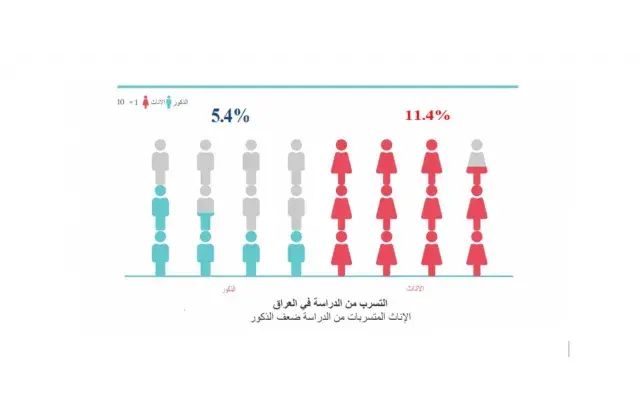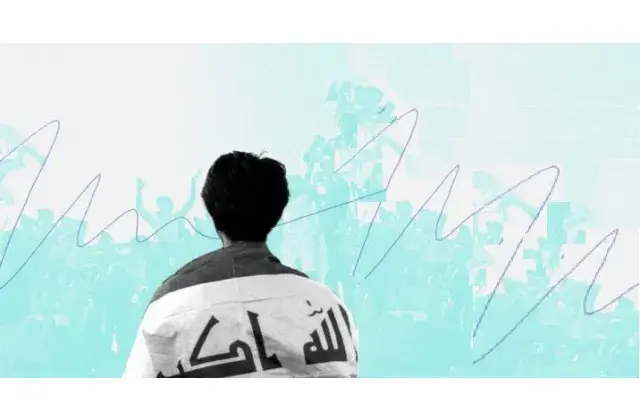The Contradictions of the Iraqi Labor Market

Executive Summary
The [Iraqi] government efforts made to create sustainable job opportunities by improving the quality of vocational education and training did not achieve the desired goals of addressing unemployment and developing human capital, which came within the economic reforms of the Iraqi government (White Paper 2020). The white paper included various projects and procedures in trying to solve this problem, and one of these projects is the Vocational Rehabilitation Project (VRP), which is implemented by the Ministry of Labor and Social Affairs and the Iraqi Central Bank from (2021 to 2024).
More than a third of young people in Iraq are still unemployed, undereducated, or even untrained. Despite the country’s compulsory primary education, teenage illiteracy rates have climbed by (7.4%), and one in every five employed people is unemployed. The lack of skills has restricted graduates from Iraqi universities’ ability to find employment, and in some cases, this has resulted in their being locked in positions that are not commensurate with their talents and low productivity and earnings.
In addition, educational and training programmes and systems still do not keep pace with the future shifts in the labor market. For example, technological developments, massive changes in the labor market, and the skills required to work in the areas of data analysis, advanced industry, and other types of jobs related to climate change. Also, the political will to implement reform measures and provide sustainable job opportunities was not at the required level. This negatively affected the implementation of reform measures.
This is in line with the high population growth rate, rising job demand, the nature of upcoming labor market changes, and the rise of contemporary jobs that necessitate raising educational standards and connecting them to vocational and technical training. Additionally, it promotes the incorporation of the basic pillars of global management and labor standards into the design of educational and training initiatives. This can be achieved through the application of Germany’s dual-track vocational training program, known as the VET, which is a mixture of theory in the academic institute and practical practice in the production sectors, (70%) within the institution, the workshop, factory, company, or office, and (30%) in the vocational school, and targets all individuals in society.
Dual vocational education and training in Iraq will achieve the following: helping trainees acquire vocational qualifications and specialized skills and providing practical application in appropriate working conditions. Trainees also receive a financial reward during the training period. As for the companies, factories, or private institutions, this program will guarantee them the provision of specialised professional labor following the labor market requirements. Implementing this program will offer high levels of production, human development, and the creation of long-term work possibilities.
The full policy paper can be found at this link






